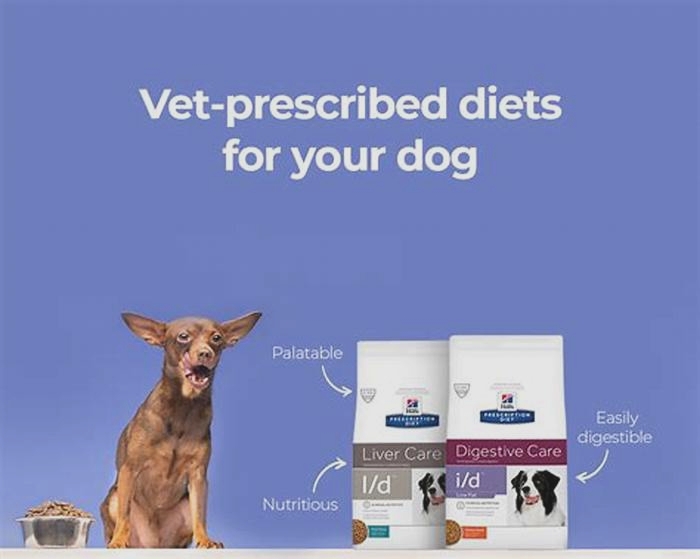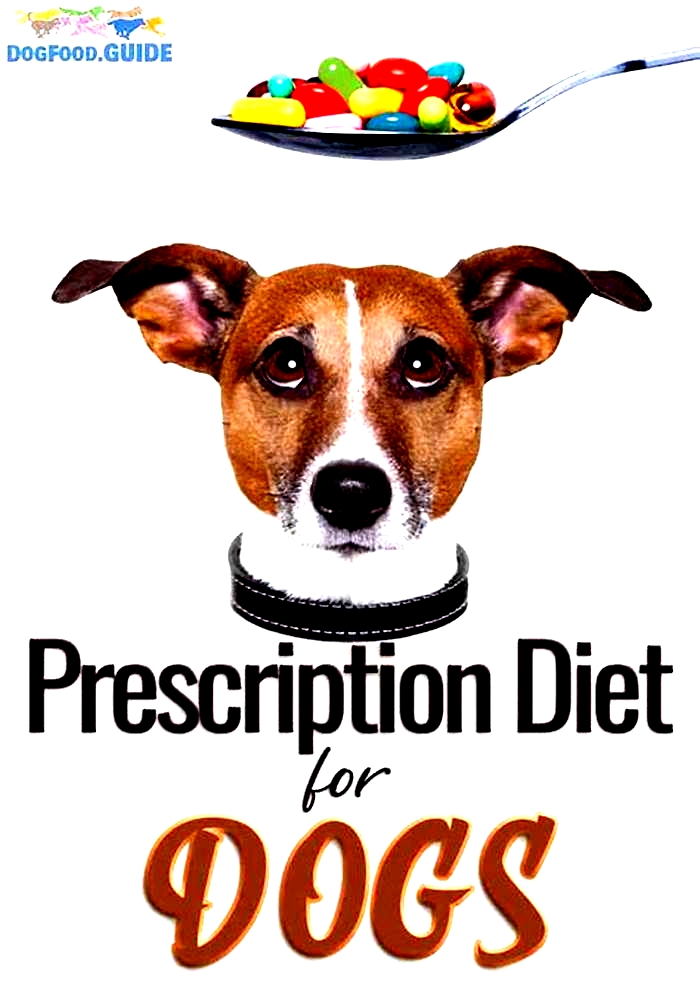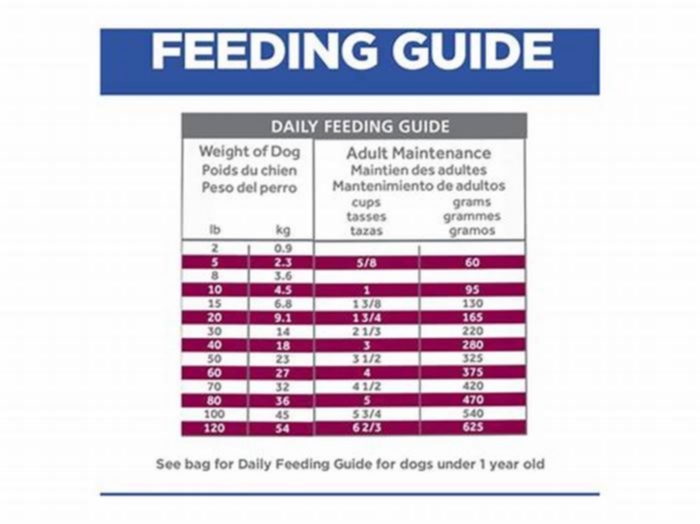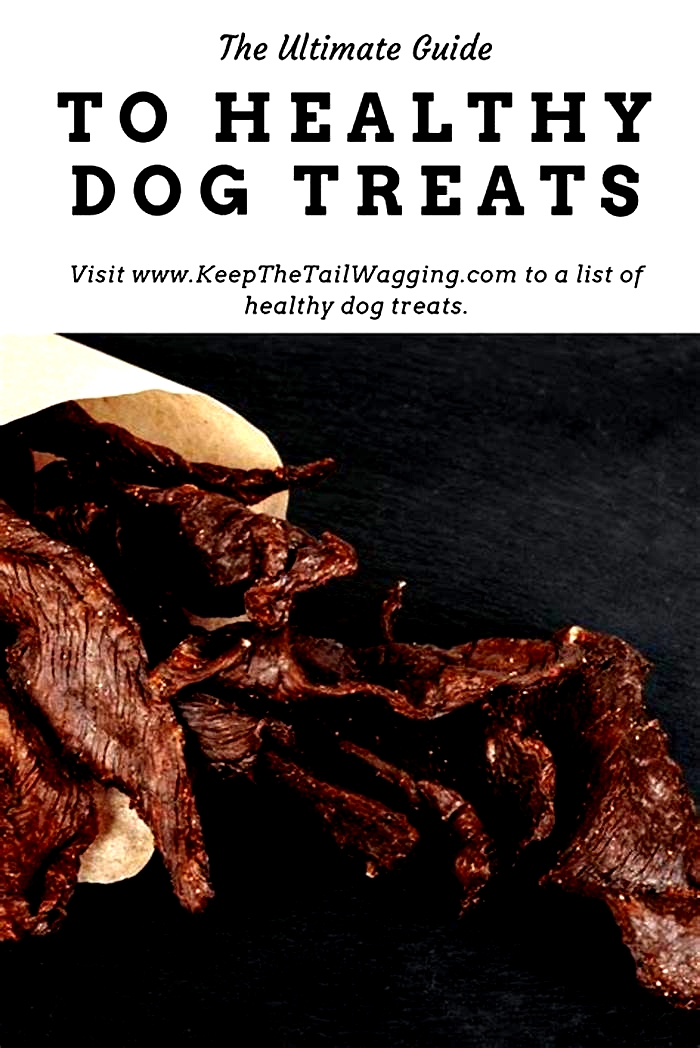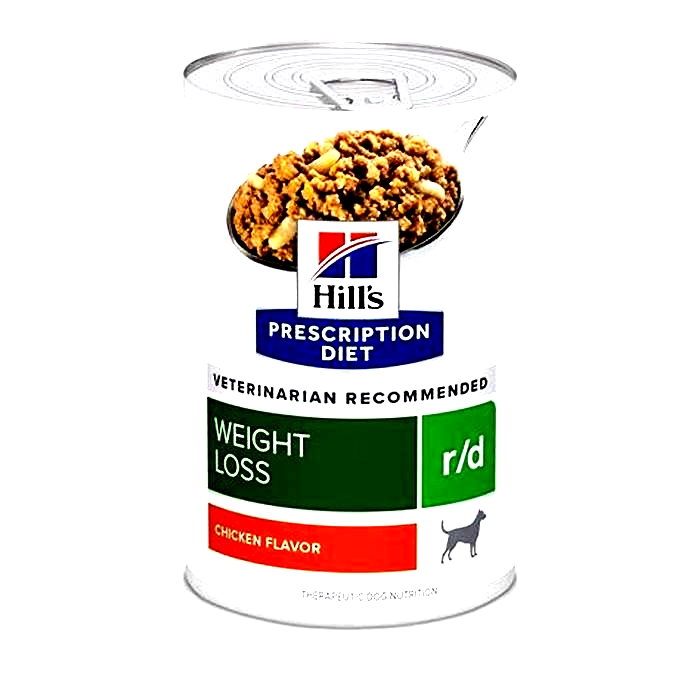Rx for Good Health A Comprehensive Guide to Prescription Dog Diets
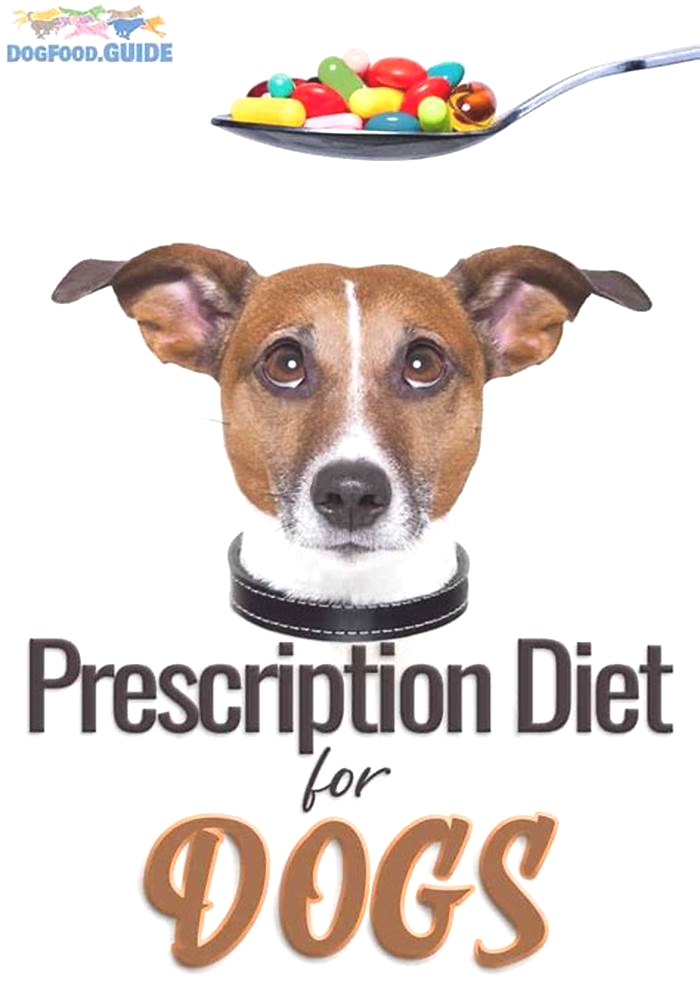
Does Your Dog Really Need A Prescription Dog Food?

If you are thinking about prescription dog foods it probably means that you have received some kind of bad news about your dogs health. He has a health problem and you need to make changes in his diet.
Your veterinarian may have recommended a prescription dog food. We are not vets and we dont know your dogs individual health problem. However, we can give you some information about prescription dog foods to help you make an informed decision with regard to your dogs diet.
Facts about prescription dog foods
There are differing opinions about prescription dog foods, even among veterinarians. The early creator of these diets was Hills and they are still the largest brand in this category. Other companies that make veterinary diet formulas include Eukanuba, Royal Canin, Innovative Veterinary Diets (IVD), Purina, and Waltham.
As you can see, most of the companies involved in making prescription dog foods are large corporations. It takes money, a large staff of researchers, facilities, and other overhead to invest in these diets. Small, innovative holistic pet food companies rarely have that kind of money to invest though they could grow to make prescription pet foods in the future.
You have to have a prescription from a veterinarian to obtain one of these foods, though you dont necessarily have to purchase them from your vet. You can use the prescription to buy the food online, for example. As you probably already know, prescription diets tend to be very expensive.
In theory, prescription dog foods are medications. The companies that make them spend a lot of money on research and development, just as drug companies do when developing new medications. A vet prescribes a specific food after diagnosing a dog with a specific condition, then monitors the effects of the food on the dog.
In order for a dog food manufacturer to claim that one of their products is effective for a certain disease, the Center for Veterinary Medicine (CVM), part of the FDA (Food and Drug Administration) must see research from the company proving their claims.

The company has to show full documentation that the food is safe and that is works. The food still has to meet AAFCOs general labeling guidelines but the CVM watches over their medical claims.
Many people complain that these dog foods have low quality, filler ingredients and low meat content. All you have to do is read some of the labels and you can see that these complaints are justified in most cases.
Most prescription dog foods do not have high quality or holistic ingredients. Meat content is intentionally low in some foods because certain health conditions may not allow for high percentages of protein, so thats a separate issue.
But its not unusual to see veterinary diets with ingredients that you would not normally like to feed your dog. For example, Brewers rice is the first ingredient in one food from Hills $89 for a 25 pound bag. Yet the food receives 4.5 stars out of 5 from reviewers and 95 percent of the people who bought the food would recommend it.
Do prescription diets work?
Yes, in many cases prescription diet dog foods do seem to work when they are correctly prescribed for a dogs condition. If your dog is sick, you may have to put aside your dislike of some of the ingredients in the food and focus on things that work.

Dogs do benefit from ingredients in dog foods that are not holistic. Sometimes its a question of having a precise ratio of protein, fat, fiber, or other nutrients. Sometimes a food may contain an unusual ingredient or work in some other way. For example, Hills makes three kinds of diets for dealing with bladder stones, depending on what kind of stones your dog has.
If your dog has struvite stones, their s/d diet works by making the urine extremely acidic to dissolve the stones. Their c/d diet also acidifies the urine but can be fed as a preventive. And their u/d diet is used for urate and cystine stones.
So these different prescription diets actually have ingredients that affect the acidity of your dogs urine. Thats what youre paying for with prescription diets. It doesnt show up in the guaranteed analysis or the things we normally look for on the dog food label, but it can be very important if your dog is ill.
Do you have to feed a prescription diet?
It probably depends on your dogs health and the issue hes facing. Some veterinarians like prescription diets more than others. Dr. Jodie Gruenstern, a holistic veterinarian, is not a fan, as she writes in Dogs Naturally magazine.
She doesnt use or recommend prescription diets. She points out some of the undesirable ingredients in veterinary diets, as weve been discussing, and also points out that most of them are high in starch. She also adds:
Manufacturers of most prescription diets also caution against long-term feeding of their diets. Most of these diets are extremely restricted in specific nutrients and they are not intended to be fed long term, as significant deficiencies can develop.
This is certainly true. However, we do note that the same thing is true of any medication. You would not continue to take penicillin on a long-term basis. Prescription diets need to be considered as medications, to be used as short-term treatments for a specific medical health condition.
Dr. Gruenstern favors a raw diet, though that may not be feasible for all dog owners, especially when they are coping with a sick dog.
What about over-the-counter dog foods for health conditions?
There are lots of dog foods today that make health claims although they may be skirting the FDA by doing so. If you check the FDA web site, you can find occasional warning letters sent to various pet food companies over the years advising them to stop making certain health claims about their foods.
You can find commercial dog foods for dogs with various health issues such as sensitive digestion, food allergies and food sensitivities, weight problems, healthy joints, and foods for senior dogs. To take foods for healthy joints as an example, its not unusual for many dog foods today to have added glucosamine and chondroitin, especially in foods for large breed dogs.
However, the amounts of glucosamine and chondroitin added to these foods are not considered to be a therapeutic level. In order for your dog to actually benefit from these supplements, you would have to give him more than the amounts normally added to over-the-counter dog foods.
If dog food companies added a therapeutic level of glucosamine and chondroitin to their foods, they would have to be overseen by the CVM/FDA like a prescription dog food. (You can read more about these supplements here.)

Feeding a dog food that contains glucosamine and chondroitin may be helpful in minor ways (though evidence is currently lacking) but if your dog really needs a joint supplement, you are better off adding your own supplements to your dogs diet.
You will notice that the labels for over-the-counter dog foods are usually very general. They wont say they actually prevent or treat a problem since those are medical claims. Instead, they will use vague terms such as promote or support.
They are less likely to get in trouble for using these terms and dont have to provide proof of their statements. Over-the-counter dog foods making these health statements are overseen by AAFCO rather than CVM/FDA, unlike prescription dog foods.
These diets have not had as much research or work put into them as the prescription diets. However, in many cases the breakthroughs made with prescription diets eventually end up benefiting dogs by being incorporated into commercial dog foods.

Whats the Rx?
The bottom line with prescription diets is that sometimes dogs really need them, regardless of whether we like the ingredients or not. Hills once dominated this field but with more competitors, it means there are now more choices for many veterinary and over-the-counter diets now.
If your vet prescribes a diet for your dog and he wont touch it or he doesnt seem to be improving, you may have other options.
Do keep in mind that over-the-counter foods do not have the same therapeutic values as prescription diets, even if they are more or less designed to address the same health problem. In some cases they may be a good alternative to a prescription diet if you are coping with a weight problem or a food sensitivity, for example.
In other cases, there is no substitute for a prescription diet. Over-the-counter dog foods wont produce the same results as these diets for some problems. If your dog has a serious health problem, work with your veterinarian to find a diet that will help your dog.
Finally, as noted above, remember that veterinary diets are not intended to be fed on a long-term basis. These foods are medical in nature. They should be considered the same way you would consider a prescription from your pharmacy.
Give it to your dog as a treatment and work with your veterinarian to see his health improve. Then move on to a good quality diet that is appropriate for his health situation.

What can prescription diets be used for?
Veterinarian-Prescribed Dog Foods. Medical diets are the ones formulated for dogs with health problems, from vexing but garden-variety conditions such as itchy skin or digestive issues, to more serious health problems such as cancer or kidney disease.
What is the difference between Hill's Science Diet and Prescription Diet?
Prescription Diet brand pet foods are formulated to address specific medical conditions that can develop in pets. Science Diet brand pet foods are formulated to meet the needs of healthy pets during various life stages.
Why do some pet foods require a prescription?
Most veterinarians and pet food stores will not sell the prescription diet without a prescription because they do not want to make any waves with the manufacturers. Even so, veterinarian involvement is a good idea because some diets can be misused and cause a worsening of certain medical conditions.
Is prescription dog food necessary?
Several gastrointestinal problems, like inflammatory bowel disease, may be related to food allergies or sensitivities but require more specialized prescription diets. If your dog has a chronic health problem, it's worth asking your vet if a prescription diet could help.
Prescription Diet Dog Food Guide and Recommendations
Maria is a freelance writer who loves having dogs around. She loves how fun and rewarding to bring a dog into the family. She makes extensive research on how to better care for your little furry. She is dedicated to helping you have the best life together.
Latest posts by Maria Reverberi
(see all)Just like specialized diets prescribed by your doctor (such as low carbs or no sugar foods) dogs with a chronic disease or terminal illness must also follow certain specific diets prescribed by their vets. Prescription diet dog food is used to be most readily available in vets offices, but now you can find a wider selection online and even from some small-batch dog food companies, likeJust Food for Dogs.
Prescription dog foods vary in ingredients and are prescribed by vets depending on your pets medical needs. Unlike regular dog food, prescription food cannot be bought at the stores without a doctors prescription. Specialized medical dog food contains higher/lower proteins and many other components geared towards helping elderly dogs or dogs with medical issues that prevent them from having a healthy lifestyle.
What Is Prescription Dog Food?
Prescription dog food is dog food made with a special formulary that, because of its custom ingredients, does not meet the AAFCO (Association of American Feed Control) guidelines for commercial dog food. This is why when you go to the pet store, you are not allowed to purchase prescription dog food without written proof of your vets directive. The food is kept behind the register or at the stores Veterinary counter. At Petsmart, for example, the prescribed food is sold behind the vets counter. And while other stores have prescription foods on their shelves, once you get to the register you must present the written prescription from your dogs vet or you will not be allowed to buy it.
Unfortunately, the internet has made it possible for irresponsible dog owners to buy prescribed food without consulting their dogs veterinarian. Merchants like Petco or Petsmart require proof of the prescription prior to approving the order. Stores like Amazon sell prescribed diet food and assume no responsibility because its the dog owners duty to consult the experience of a vet. However, other stores likeChewy.comwill request a vets prescription before they release the order.
Can My Other Dogs Eat the Prescription Food Too?
No.
Remember when we mentioned that prescription diets dont meet AAFCO guidelines? Thats an important detail. Any bag or can of dog food that you purchase in the U.S. has to meet AAFCO guidelines to ensure that it is safe to feed a dog. If you allow an otherwise healthy dog to eat prescription dog food regularly, they will become seriously malnourished and eventually very ill.
Dont give in to the droopy, sad eyes, face or whining. Giving your pooch prescribed food when he/shedoesnt need it will make him/her sick. Therefore, be diligent if you have more than one dog. Make sure to supervise yourdogs or separate them when feeding time comes along so your healthy pooches dont eat food that can kill them. Allowing your healthy dogs to digest prescribed food could also be detrimental to their health if it doesnt kill them. This is the reason why prescription food is mostly accessible at veterinary hospitals.
What Illnesses Require Prescription Diet Dog Food?
Prescription dog food can be used as either a standalone treatment or in support of a series of treatments for a wide range of medical problems.
Digestive Disorders or Gastrointestinal Issues
Just like humans, some dogs have sensitive digestive systems and are prone to infections or mild to severe stomach issues.According to PetMD, Pancreatitis develops when the organ becomes inflamed, which can occur for a number of reasons (obesity, infection, trauma, metabolic disorders, etc.) or seemingly out of nowhere. When the pancreas gets inflamed, something causes the enzymes inside the pancreas that digest the food to break down outside the stomach resulting inthe absorption of other organs in the body including the liver and kidneys.
If not taken care of right away, the progression is immediate and deadly. Symptoms vary in dogs, but if your pooch has been vomiting, has lost weight, has had diarrhea, has been fatigued and or has had difficulty breathing amongst other things, your vet will do a blood work and stool test to determine the cause. When caught early, pancreatitis can be taken care and your pooch cured. This is when vets prescribe a special medicated diet food. Other digestive system disorders include gastroenteritis, acid reflux, inflammatory bowel disease (IBD), etc.
Kidney Disease/Failure
Renal disease or failure in dogs often demands a low-protein diet provided by the best low-protein dog food. Commercial dog foods, even those with the lowest protein content, still contain more protein than a dog with failing kidneys can handle.
Since an otherwise healthy dog will become severely malnourished if fed a low-protein food for too long, low-po dog food is only available by prescription. There are also specialty hepatic formularies that restrict not just protein, but also copper, fat, and phosphorus, which can also be dangerous for already burdened kidneys.
Weight Loss
Depending on the pounds your pooch has gained, your vet will prescribe a special diet for your little one. If its a matter of one or two pounds, most likely your vet will tell you to cut down the portionof food you are feeding your dog. However, usually, more than a two-pound increase will alert your vet because having a fat dog is not cute or cuddly, but dangerous instead.
Fiber based diets assist with the carbohydrates absorbed which help moderate glucose consumption in dogs. If you notice your best friend a bit plump, check to see if you cannot feel his/her ribs. If you feel around his/her side and cant determine where the ribs are or the waist is, your dog is most likely overweight. In addition, youll notice him/her having difficulty walking and is slow, and sleeps more than his/her normal routine. Maintaining your dogs weight is imperative because dogs get sick like humans and can develop arthritis, diabetes and heart disease. If that happens you can switch them to the best diabetic dog food to help remedy and reverse the problem.


Hills Prescription Diet w/d Canine Digestive/Weight/Glucose Management Chicken 12x13oz
Buy from Amazon
Urinary Tract Infections and Bladder Stones
Sadly dogs also get urinary tract infections and bladder stones just like humans. Female canines are more prone to it than the males. When urinary tract infection invades your dog, certain prescribed foodshave reducedlevels of magnesium and certain types of bacteria that fight the bad germs and regulate the nutritionalmanagement of calcium oxalate and other chemicals needed to maintain your dog healthy.


Hills Prescription Diet u/d Canine Non-Struvite Urinary Tract Health 8.5lb
Urinary tract and bladder health
Buy from Amazon
Cancer
Dogs with cancer or cancerous tumors can be switched to a neoplastic dog food. Research has suggested that cancer cells are fed by carbohydrates, and commercial dog foods are usually very high in carbs (even the best ones). A neoplasia support prescription dog food is generally very high in Omega 3 fatty acids and very simple, restricted carbohydrates. They are also generally formulated with fewer antioxidants than can be found in the top-of-the-line low-carb commercial options, since these can (and will) interfere with chemotherapy treatments.
Allergies
Sometimes dogs develop sudden allergies to food or other ingredients. A sensitive digestive system means your dog will not eat. Other times, your pooch will throw up or get diarrhea after he/she eats.When this happens, a medical diet will be prescribed by your dogs vet. My Harley for example, developed allergies to poultry when she was seven years old. It took a year or so to narrow down the ingredients she was allergic to and to find the foods she could eat without throwing up. For a while, she ate prescribed venison, but a few years later, her stomach did not like it either. Today she is on the Hills Digestive Care i/d and sliced apples which she loves. Dinner or lunch time is no longer stressful and instead, at 13.5 years old she continues to be her spunky self.


Hills Prescription Diet z/d Canine Small Bites dog food 7 lb (3.17 kg) bag, Small
Buy from Amazon
Which Brands Sell Prescription Dog Food?
Hills Prescription Diet (or Hills Science Diet) and Royal Canin are currently the only two mainstream dog food brands with a prescription line. If youre buying food directly from your vets office, it will almost certainly be one of these two brands. You can also find these foods on Chewy.com, though you will need to provide a copy of your Rx before completing your purchase.
If convenienceis less important to you than the quality of the food, you should consider going independent.Darwins Natural Pet Productsand Just Food For Dogsboth carry prescription dog food made with their proprietary, human-grade, whole food blends. Like Hills and Royal Canin, they will also requirea prescription before they can be dispensed. Darwins Natural food can be purchased either online or in person from their Tukwila, WA store; JFFD food can be purchased online or in person from one of their kitchens in Southern California.
How Do I Get Prescription Diet Dog Food?
Medical diets are prescribed when your veterinarian decides your little furry one has no other option. Most vets will advise dog parents prior to going that route. Sometimes a change of regular store bought food, brand or organic kibbles is all your dog needs. After all, if we ate chicken salad 365 days a year, wed be pretty sick of the food as well.
If you feel that your dog is suffering from an illness that can be treated with a special diet, your first step is to make an appointment with your vet. If your vet confirms the diagnosisandagreesthat such treatment is the best course of action, they will write you a prescription for the special dog food. Like a prescription for human medication, this script can be taken anywhere the specialized food is dispensed.
Of course, dogs will be dogs, and they do tend to get tired of the same food. If they refuse to eat their prescription food, you may want to switch them to another type or flavor. This does not mean you should not consult with your doctor first, and do not take them off the prescription food unless your vet gives the green light. Remember, its better to be safe than sorry when it comes to the care of your loved one.
Continue reading:
Top 5 Rated Best Non-Prescription Diabetic Dog Food
Hills Prescription Diet Digestive Care with Turkey Dog Food Review
The Best Dog Food To Prevent Seizures In Your Pooch




